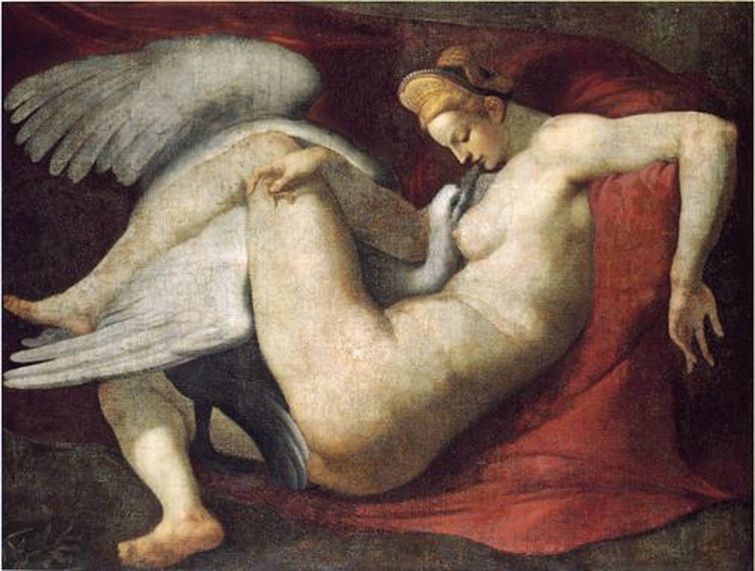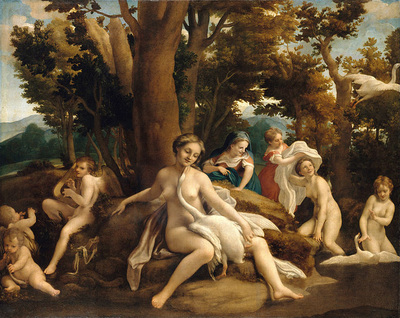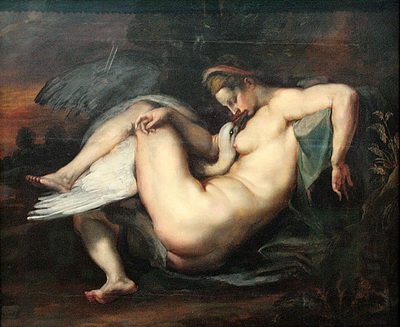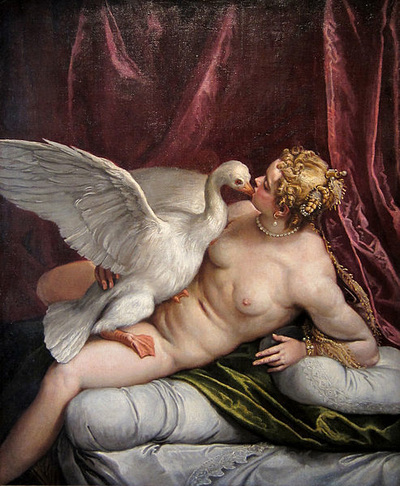Leda and the Swan
Leda and the Swan - After Michaelangelo post 1530 - National Gallery London
Date: after 1530
Medium: Oil on canvas
Dimensions: 105.4 x 141 cm
Date: after 1530
Medium: Oil on canvas
Dimensions: 105.4 x 141 cm
Leda and the Swan
|
Painted after 1530 in the style of Michaelangelo, and possibly a copy of the master's work, this painting shows the coupling of Queen Leda with Zeus disguised as a swan.
Leda was married to King Tyndareus, and was regarded as one of the era's most beautiful women. Naturally therefore, Zeus sought her out to have his way with, and in the form of a swan seduced her, on the same day though Leda also slept with Tyndareus, and susbequently Leda would give birth to Castor and Pollux, Clytemnestra and Helen, with Helen and Pollox nominally the offspring of Zeus. More information about Leda and the Swan can be found here - (website opens in new window) |
|



